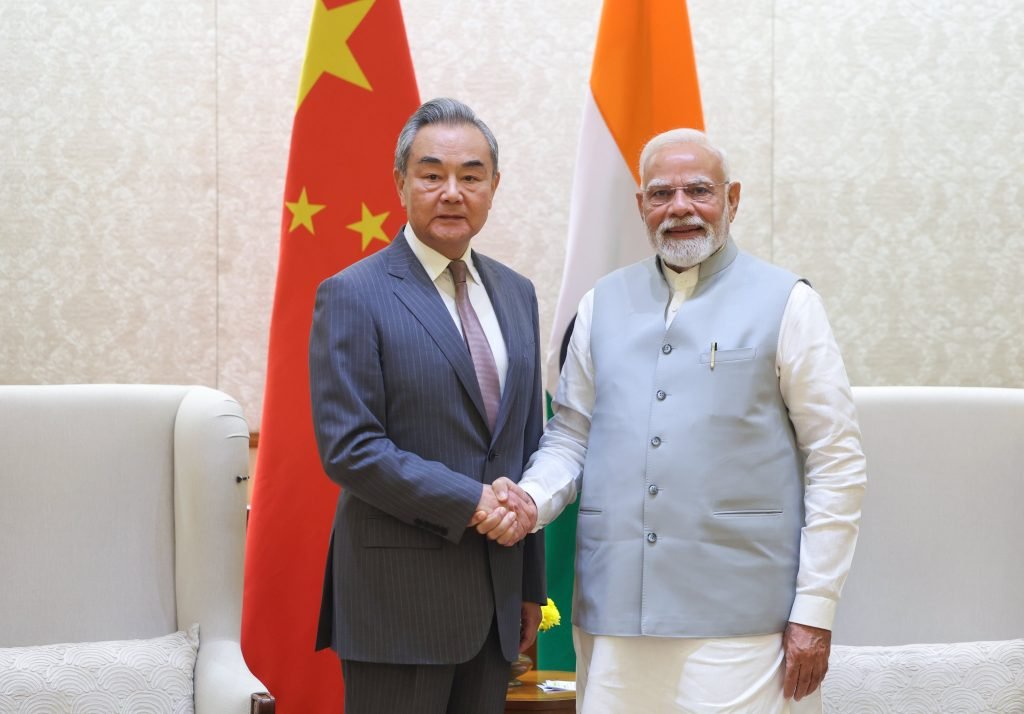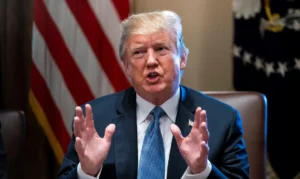
India’s Prime Minister, Modi, recently posted a comment on his social media full of veiled criticism directed at Donald Trump’s arbitrary actions. The statement, which appears to be a diplomatic message about his meeting with China’s Foreign Minister, Wang Yi, actually contains a series of blunt messages for Washington.
Modi wrote: “It was a pleasure to meet Foreign Minister Wang Yi. Since my meeting with President Xi in Kazan last year, India-China relations have made steady progress, guided by mutual respect for each other’s interests and sensitivities. I look forward to our next meeting in Tianjin on the sidelines of the SCO Summit. Stable, predictable, and constructive ties between India and China will contribute significantly to regional and global peace and prosperity.”
Every sentence in this statement carries a specific message to the United States, coming at a time when India feels it’s being unfairly penalized with 50% tariffs on its products for buying Russian oil—something Washington had explicitly asked it to do.
When Modi expresses “pleasure” in meeting the Chinese representative, he’s signaling that India will not bow to American pressure to isolate China. The “steady progress” in Sino-Indian relations is a direct message that the American strategy of “divide and conquer” is not working.
The mention of “mutual respect for each other’s interests and sensitivities” explicitly contrasts with the American approach of unilateral tariff imposition and economic blackmail. It’s a veiled, but unequivocal, critique of Washington’s imperial behavior.
By confirming his participation in the SCO Summit in China, Modi demonstrates that India will not be intimidated by American pressure to distance itself from multilateral forums led by China and Russia. The SCO (Shanghai Cooperation Organisation) is viewed by the United States as a rival to its global hegemony.
The final phrase about “global peace and prosperity” is the most pointed message: Modi is saying that world stability depends on good Sino-Indian relations, not on American hegemony. It is a direct rejection of Washington’s worldview.
The indignation behind these subtexts is understandable. India is being punished with confiscatory tariffs for following American directives. Washington had explicitly asked India to increase its purchases of Russian oil to prevent disruptions in international prices. Now, it is punishing New Delhi for doing exactly that.
The hypocrisy is glaring: China buys much higher volumes of Russian oil, but Trump announced he would “postpone” any penalties on Beijing. Europe continues to import Russian gas and fertilizers. The United States itself maintains imports of Russian fertilizers. But only India is being punished.
U.S. Treasury Secretary Scott Bessent had the audacity to accuse India of “profiting” from its Russian oil purchases. What he conveniently omits is that this increase was a direct result of American pressure.
India is learning, just like Brazil, that the empire does not accept neutrality. The empire only respects strength.
This lesson isn’t new. 2,500 years ago, the Greek historian Thucydides recorded a revealing dialogue during the Peloponnesian War. The small island of Melos wanted to remain neutral in the conflict between Athens and Sparta. The Athenians categorically rejected this possibility.
As Thucydides recorded, the Athenian representatives were brutally direct: “the right, as the world goes, is only in question between equals in power, while the strong do what they can and the weak suffer what they must.” The Athenians explained that they could not allow Melos to remain neutral because it would be interpreted by their imperial subjects as a sign of weakness.
The parallel to today is striking. Just like the ancient Athenians, the United States does not accept neutrality. Washington demands total submission or considers any country an enemy. India, like ancient Melos, has discovered the hard way that there is no middle ground with hegemonic empires.
But today’s India, with its 1.4 billion inhabitants and growing economy, is not the defenseless Melos of antiquity. Modi is showing that India has choices—and is making the right choice by drawing closer to China, the BRICS, and the Global South.
The messages have been sent. It remains to be seen whether Washington will have the wisdom to listen.








